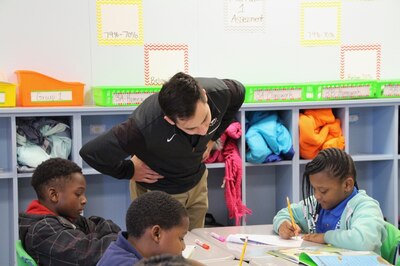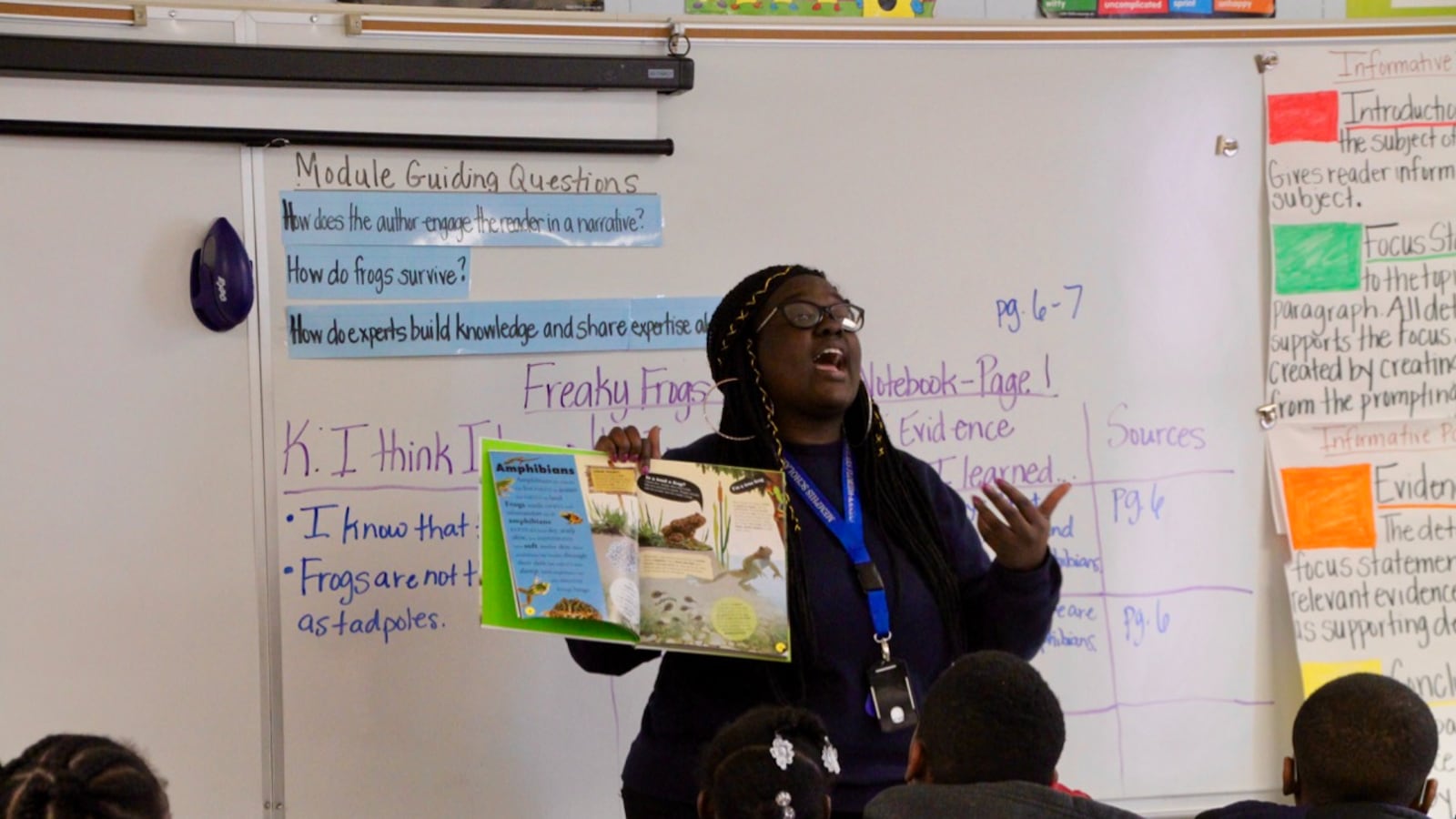Teacher turnover is so common among local schools that it’s regularly referred to as the “Memphis shuffle,” says recruiter David Makita.
The constant churn of educators is especially felt at Makita’s charter organization, Memphis Scholars, where he leads teacher recruitment and retention efforts. The network runs three schools and serves some of the city’s most vulnerable students in the state’s Achievement School District.
Almost half the teachers at Memphis Scholars left three years ago, and about 43% last school year. This year, the charter school network aims to retain 80% of its teachers and created Makita’s job to help achieve that goal.
“For me growing up, when I was a fifth-grader, I could walk down the hall and visit my old kindergarten teacher,” said Makita, director of recruitment and engagement. “There were a core set of adults that were constant in your life and cared about your success. I’d argue our students need that the most.”
Over the past six years, half the teachers on average were new to the 30 schools in the Achievement School District, created to turn around the state’s lowest-performing schools. But the district – with three-quarters of its students coming from poverty – has struggled to make academic gains.
Retention of effective teachers is critical for the district, which is struggling to improve student achievement for students who are furthest behind. Research is clear that effective teachers are an important factor contributing to student achievement. And while high teacher turnover is a national problem, a study has found students of color and students from low-income families are affected the most in Tennessee.
RELATED: Tennessee school turnaround models either haven’t worked or are stalling out, new research finds
“The thing about teacher turnover, it feels like you’re starting over every year,” said Memphis Scholars Executive Director James Dennis, now in his second year leading the 921-student network. “It makes it hard to sustain a turnaround program when you’re doing that.”
In addition to creating Makita’s new role, Dennis said, every two months, he and Makita meet with school staff as part of a “listening tour,” where they can get feedback on what’s working and what’s not.
“I think people are willing to kind of go with you a little bit further if they know you at least really try to listen and really try to do things differently than what you’ve done in the past,” Dennis said.
Other charter organizations in the district have found success in retaining teachers in part by offering $5,000 bonuses for teachers who stay. While Memphis Scholars hasn’t gone that route, Dennis said, they are focused on a more rigorous hiring process.

Memphis Scholars has seven resident teachers across its three schools that receive extra mentorship and support through a new partnership with Relay Graduate School of Education, an alternative teacher licensure program.
“Part of high turnover is just not finding folks who are the right fit or have had the necessary training,” Dennis said. “So, we launched a teacher residency program [with Relay] this year to really focus on growing the teachers we need.”
Andrew Fields, one of the Relay resident teachers, said the extra training and the support of a mentor have helped him feel less overwhelmed in the classroom.
“Anything I’ve had to do, I’ve never had to guess how to do it,” said Fields, who teaches second- and third-grade math. “This is hard work. I can see why it would be easy to leave a school with high needs like this after a year if you didn’t feel supported or have people celebrating the small victories.”
One of those victories for Fields was watching a student go from only being able to count and multiply by drawing sticks on his paper to being able to do math through formulas and multipliers.
He works down the hallway from Epiphany Henry, who after three years with Memphis Scholars, is one of the veteran teachers.
Henry has taught in Memphis for eight years. She said respect for work/life balance from her bosses has kept her at Memphis Scholars, and that she has felt a shift in culture at the school this year toward greater teacher appreciation.

Smaller classes also help. She said she has 17 students this year, compared with almost 30 at a previous district elementary school. But Henry acknowledged that teaching at a school with large numbers of students living in poverty is extremely difficult work, even with smaller classes.
“I think that’s why you see so many teachers leave – they don’t understand what it really takes to serve students in this community,” said Henry, who was born in Memphis. “Some of the life skills we think are obvious or a child should know, some children just don’t have those skills. And we teachers are going to have to take a bigger role other than just teaching.”
Memphis Scholars is seeking to boost its teacher retention at a time when state officials are calling for greater accountability for the district’s charters, which operate the schools in the state district. Under Commissioner Penny Schwinn, state officials just wrapped up its own listening tour to get public input on the district’s future. Schwinn has said major reforms are needed for the district, which has struggled to boost student test scores.
Yolanda Dandridge, one of the interim superintendents for the achievement district, said teacher retention “always stays at the top of our minds.”
“We know one of the things that make sure students are learning: The number of years a high-performing teacher is in front of them,” Dandridge said.

